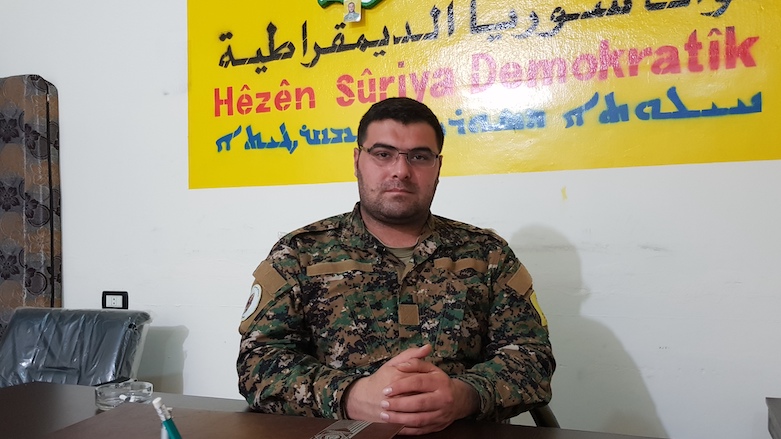ERBIL (Kurdistan 24) – An official spokesperson for the Syrian Democratic Forces (SDF) has rejected media reports that the Kurdish-led forces are supporting the Syrian government’s operations against rebel-strongholds in Idlib and western Aleppo.
SDF Spokesperson Kino Gabriel released a statement on Sunday, informing that media reports about the SDF’s involvement in military operations in Iblib and western Aleppo are “not true.”
Various informed sources on social media suggested that Kurdish-led forces based in northern Aleppo joined a new Syrian government front against Syrian rebels to encircle western Aleppo.
The head of the SDF press office, Mustafa Bali, joined the conversation on social media and rejected reports that claimed the SDF had participated in Syrian government operations.
“As SDF, we do confirm that these reports are not true,” Bali tweeted.
The rumors appear to have stemmed from the close proximity of Syrian Kurdish forces to the Aleppo region. Indeed, in February 2016, regained control of Tal Rifaat and its surrounding areas from rebel groups.
There are over 170,000 displaced Kurds that fled from Afrin, who are living in Tal Rifaat, and surrounding areas in northern Aleppo after Turkey occupied Afrin in March 2018.
The Syrian Observatory for Human Rights (SOHR) reported clashes between Turkish forces and Kurdish fighters west of al-Bab city earlier in the week and, on Sunday, said Turkish artillery shelled Kurdish fighter positions in the village of Sheikh al-Issa.
SOHR also reported on Sunday that the Syrian government took control of 13 towns and villages near Aleppo city after rebel groups withdrew from the area. The Syrian government now controls the entire perimeter of Aleppo city.
Nicholas A. Heras, Middle East Portfolio Manager at the Institute for the Study of War, said joint military operations by the SDF are not necessarily part of its “high-stakes discussions” with Damascus about the SDF’s status in a future northeastern Syria.
“The SDF leadership does not want the public to believe that a condition of its talks with Russia and Assad is that the SDF must work with the regime and its allies to crush the Syrian rebel stronghold in Idlib,” Heras told Kurdistan 24.
With Russian support and Iran-backed forces, Syrian government troops have made major advances in Idlib and Aleppo’s countryside since December 2019. Control over the Idlib region means Damascus controls the strategic M4 and M5 highway. Another actor involved in the conflict, Turkey has previously expressed its opposition toward the operation.
According to a 2018 ceasefire agreement between Turkey and Russia, the province of Idlib was meant to be a “de-escalation zone” in which fighting is banned. The agreement allowed Turkey to establish observation posts in the province “to enforce” the truce.
However, the fragile ceasefire eventually crumbled in December, which prompted Turkey to blame the Syrian government for violating it. Russia, meanwhile, accused the rebel groups for failing to abide by the ceasefire.
As of last week, reports say Russian-backed Syrian government troops have completely gained control of the M5 highway and are now making advancements in western Aleppo city.
Continued conflict means the humanitarian situation in northwest Syria will remain critical. According to a report the United Nations Office for the Coordination of Humanitarian Affairs (OCHA) released on Thursday, 800,000 people have been displaced in the country’s northwest since Dec. 1 “due to intense conflict in freezing weather.”
The OCHA reported that over 550,000 people had left the Idlib area, mostly to the Dana, Maaret Tamsrin and Idlib sub-districts—regions that are already densely populated with previously displaced populations.
Over 250,000 others have moved to areas under Turkish control in the northern Aleppo governorate, including the Kurdish town of Afrin, A’zaz, Jindires, and Al Bab.

